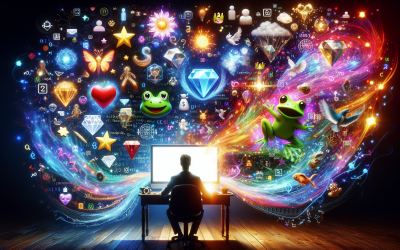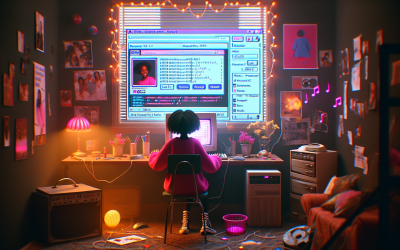Blog
The Magic of Collaborative Programming: How Teamwork Creates Code That Amazes
Discover the magic behind collaborative programming, where teamwork transforms ordinary code into extraordinary software. From insightful code reviews to dynamic pair programming and the expansive world of open source, learn how programmers combine their skills, share feedback, and solve problems together. This post explores how trust, diverse perspectives, and collective creativity produce reliable, innovative digital solutions that no individual could achieve alone. Uncover the secrets of programming’s most powerful collaboration techniques and see why great software is truly a team effort.
How to Tell Imaginative Stories with Code Using Emojis as Your Characters and Scenes
Discover how to combine coding and creativity by crafting stories using only emojis. Learn why emojis are perfect building blocks for narrative, how to write algorithms that generate unique emoji tales, and why working within constraints sparks imagination. Whether you’re a beginner or an experienced coder, explore how emoji storytelling transforms programming into a playful, expressive art form that invites readers to bring stories to life with their own imaginations.
The Legendary Moth: How Grace Hopper’s Bug Shaped Debugging and the Art of Problem-Solving
Discover the fascinating story behind the term “bug” in programming, sparked by a tiny moth trapped in a 1947 computer. Learn how Grace Hopper’s legendary debugging moment shaped the way we think about coding errors today, the art and patience of debugging, and why documenting problems matters. Dive into the history, mindset, and lessons from one of computing’s most iconic pioneers and see how her spirit continues to inspire coders worldwide.
How the Apollo Guidance Computer’s Tiny Memory Sparked Gigantic Innovation in Coding
Discover the incredible story of the Apollo Guidance Computer—a marvel of 1960s technology that took astronauts to the moon with just 4KB of memory and processing power far below today’s standards. Learn how extreme limitations inspired groundbreaking software engineering, with efficient coding, rigorous reliability, and creative problem-solving that still influence modern technology. This deep dive into the AGC’s legacy reveals powerful lessons about innovation, discipline, and the art of doing more with less, offering timeless inspiration for coders and thinkers alike.
How MySpace Turned Everyone Into Digital Creators and Changed Social Media Forever
Step back to 2005 and relive the early days of MySpace, the digital playground where millions became creators by customizing their profiles with music, colors, and code. Before Instagram and Facebook, MySpace revolutionized music discovery, flattened traditional gatekeepers, and built genuine communities based on shared interests—not algorithms. This blog explores how MySpace shaped digital citizenship, empowered self-expression through amateur web design, and left a lasting legacy on social media, teaching us that innovation alone isn’t enough—user experience and creativity truly matter.
How Playing Card Games Teaches You to Think Like a Coder: Algorithms, Probability, and Logic in Every Hand
Discover how playing card games like poker, solitaire, and bridge teaches you the same computational thinking skills that power today’s technology. From shuffling algorithms and probability calculations to conditional logic and strategic decision-making, every card you play is a mini coding lesson. Learn how these classic games help train your brain to think like a programmer by breaking down complex problems into simple, logical steps—making coding less intimidating and more relatable through the fun of cards.









